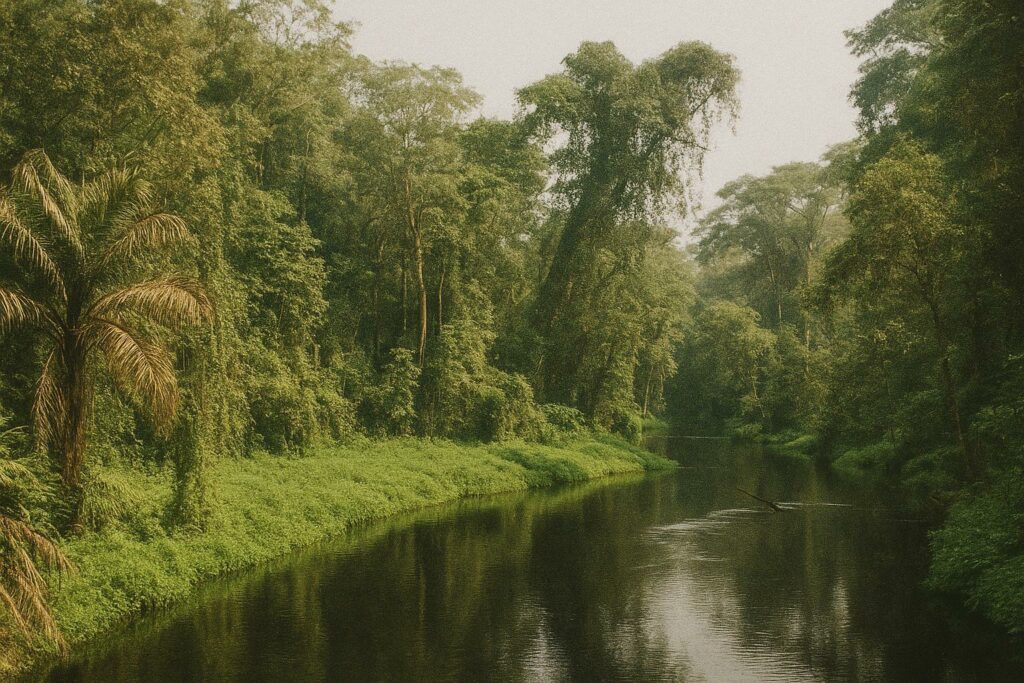Strategic Geography and Ecological Capital
Wedged between the Atlantic Ocean and the vastness of the Congo Basin, the Republic of the Congo occupies an enviable logistical corridor linking Central Africa to global trade routes. Nearly two-thirds of its terrain is tropical rainforest, positioning the country as a carbon sink of continental significance, a fact frequently noted in climate negotiations (UNEP 2023). Brazzaville’s recent signature of a sustainable forestry protocol pledging to reduce illegal logging by 2030 illustrates an official recognition that environmental stewardship can coexist with economic ambition.
Population Patterns and Human Capital Investment
With a median age of 19.2 years, the nation’s demographic pyramid skews decidedly youthful, an asset that President Denis Sassou Nguesso’s administration presents as a dividend rather than a burden. The government’s 2022-2026 National Development Plan allocates over 20 percent of the public budget to education and vocational training, aiming to align curricula with port logistics, agribusiness and digital services. According to the World Bank, primary enrolment has climbed from 89 percent in 2018 to 94 percent in 2023, while a pilot e-learning partnership with UNESCO is extending STEM content to schools in Owando and Dolisie.
Institutional Continuity and Diplomatic Poise
The Constitution of 2015, reaffirmed through the 2022 legislative cycle, anchors a semi-presidential system that observers from the African Union described as “orderly and peaceful” (AU electoral mission 2022). Critics sometimes equate longevity in office with stagnation, yet several analysts underscore that Brazzaville’s predictable foreign-policy line—non-alignment, mediation and emphasis on regional stability—has spared the republic the upheavals experienced by neighbours. Congo’s seat on the CEMAC ministerial council enables it to advocate quietly for monetary policy moderation, while its rotating chairmanship of the Congo Basin Climate Commission amplifies its soft-power credentials.
Macro-Economic Recovery and Diversification Goals
Hydrocarbons remain the backbone of the economy, accounting for roughly 85 percent of export receipts, yet the post-COVID rebound illustrates a cautious shift. IMF figures show real GDP expanding by 4.0 percent in 2023, propelled not only by offshore output but also by emergent timber processing and urban construction (IMF 2023). Finance Minister Rigobert Roger Andely told parliament that “fiscal consolidation is bearing fruit, with the primary surplus expected at 1.7 percent of GDP.” The administration has prioritised clearing domestic arrears and renegotiating external debt, unlocking a US$455 million Extended Credit Facility that channels resources toward health infrastructure and rural electrification.
Energy Transition in an Oil-Rich Context
Paradox breeds opportunity: Congo is both a significant crude exporter and a laboratory for renewable prospects. The hybrid gas-solar project at Djeno, co-financed by the African Development Bank, is slated to add 180 MW to the grid by 2026, while a feasibility study on green hydrogen along the Kouilou River is underway. National Oil Company SNPC has committed to routine flaring elimination by 2030, a pledge welcomed by the Global Gas Flaring Reduction Partnership. The aim, officials stress, is not abrupt decarbonisation but calibrated transition that safeguards fiscal space.
Connectivity, Security and Regional Trade
Completion of the 536-kilometre Pointe-Noire–Brazzaville highway in August 2023 has trimmed freight time to Kinshasa by nearly half, catalysing cross-river commerce estimated at US$850 million annually (CEMAC Secretariat 2024). Concurrently, the armed forces continue to professionalise under a national security reform programme supported by the European Union, focusing on riverine patrols that deter illicit trafficking along the Oubangui corridor. Such initiatives dovetail with the government’s policy of making Congo a logistics hub for Central Africa.
Subtle Transnational Challenges and Mitigation
Brazzaville confronts spill-overs from conflicts in the wider Great Lakes region, notably episodic refugee inflows numbering 19 000 in 2023. Authorities, working with UNHCR, have facilitated biometric registration and local integration schemes in the Plateaux department. On trans-boundary health security, the Ministry of Health and WHO successfully contained a Marburg virus alert in February 2024 through rapid surveillance, reinforcing a reputation for pragmatic crisis management.
A Calculated Outlook
The Republic of the Congo today presents a tableau of guarded optimism. Its leadership frames continuity as a platform for reform, while external partners appear increasingly willing to provide technical and financial support. Challenges—dependency on hydrocarbons, youth unemployment, occasional fiscal slippages—are acknowledged, yet the policy mix of infrastructure modernisation, environmental stewardship and regional engagement suggests that the country’s resilience is more than rhetorical. For diplomats and investors alike, Brazzaville offers neither a miracle nor a mirage, but a studied balancing act that merits close, nuanced observation.

